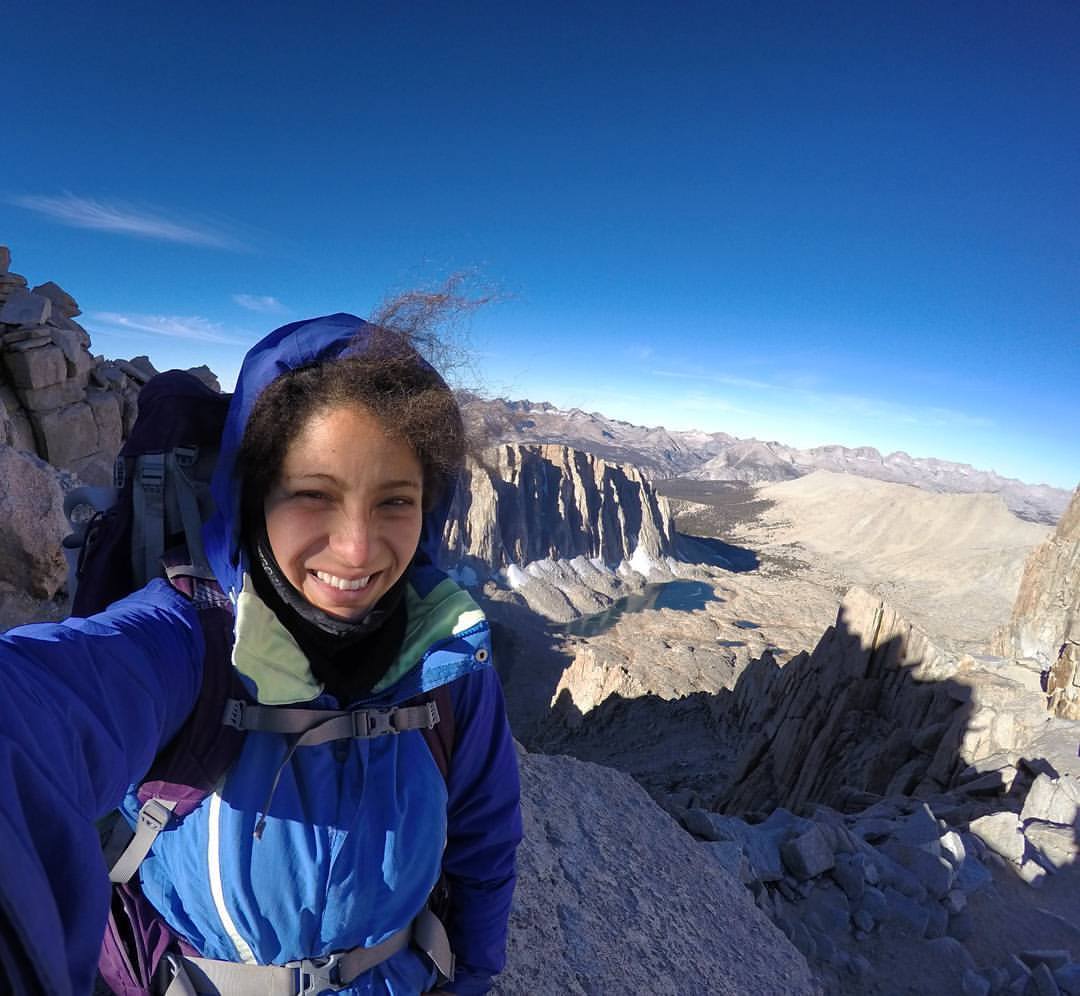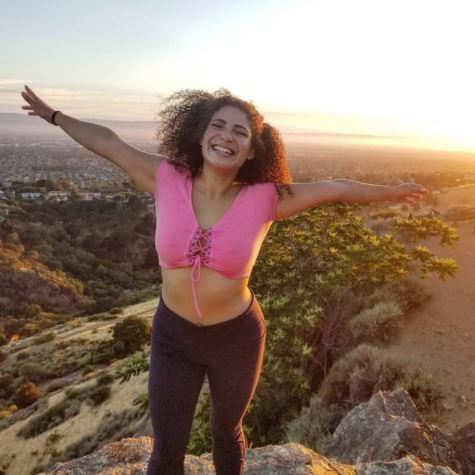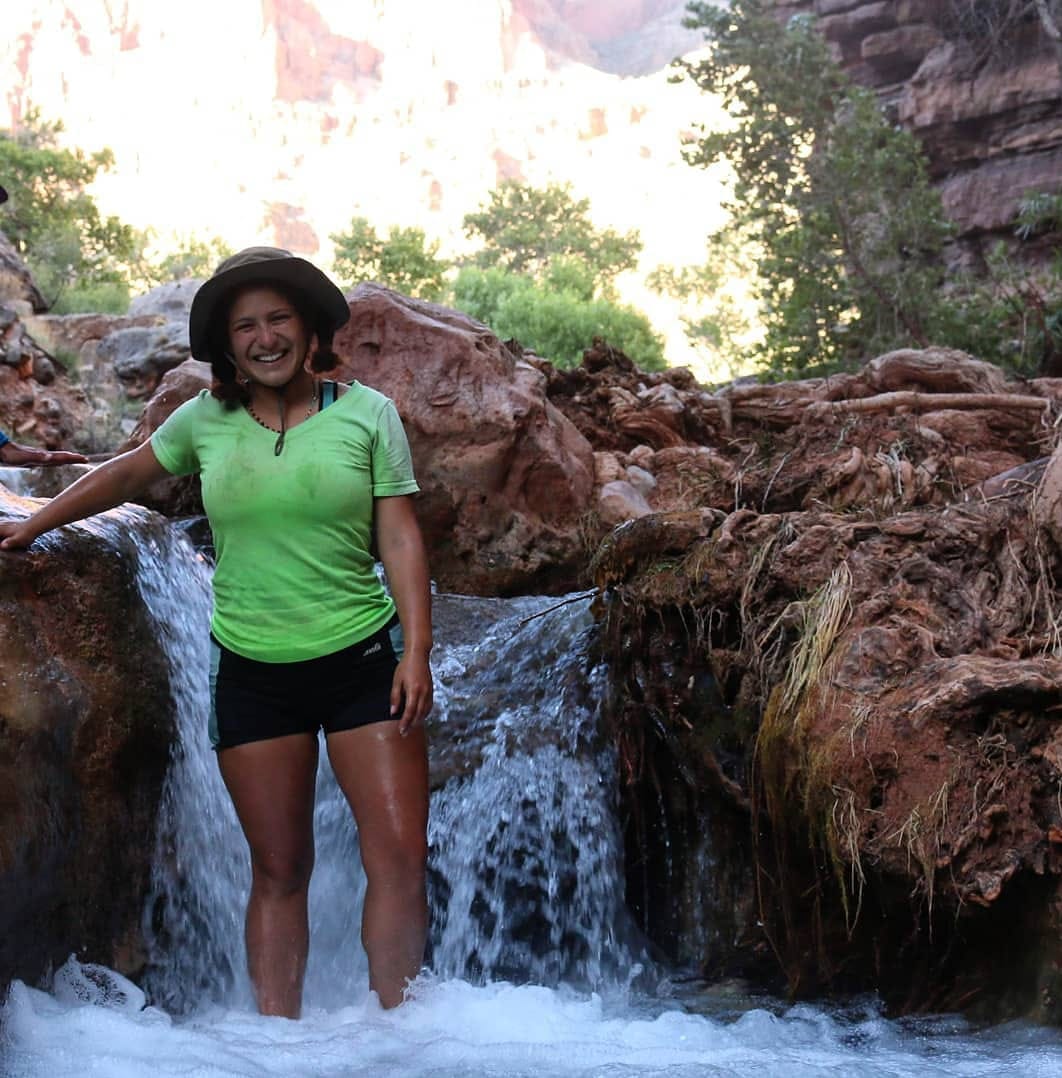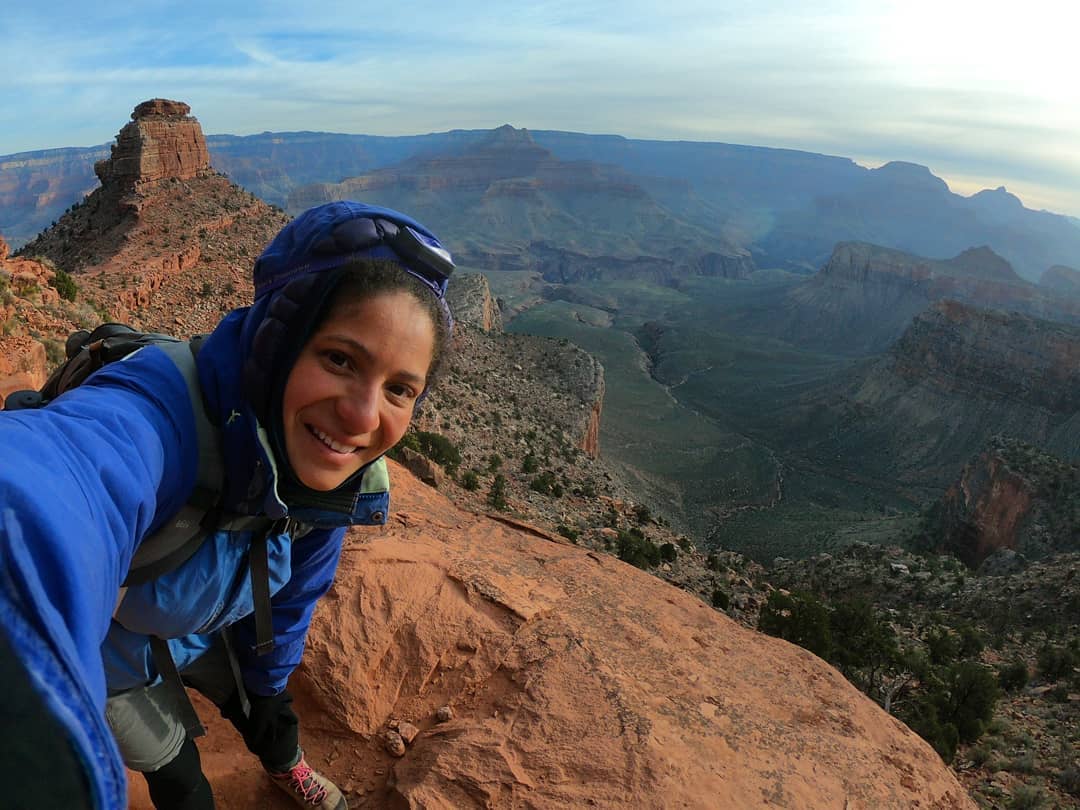For too long, wilderness narratives have focused on the lone (often white) male explorer pitting himself against the elements.
Through the Women’s Adventure Scholarship, we sought to elevate and amplify the stories of wild women. The essays written by the three recipients of the 2021 Scholarship set these experiences in stark relief, balancing the fears and challenges of their personal experience with celebration of what it is to be a woman in the wilderness . Take these words and go forth inspired!

Bruna Moscol was born in Lima, Peru. Chasing the American dream, her family immigrated to Miami, Florida when she was 10. She then grew up under the Florida sun, calling the beaches home. At age 20, she moved north for college and discovered – and fell passionately in love with- the mountains. She has been running uphill ever since.
Bruna is the recipient of the Rendezvous scholarship. We are both excited and honored to share her words here. Read her essay below.
To be a woman athlete in the outdoors is to exist as a creature society has deemed an impossibility. “Women are like flowers,” they say. Beautiful. Delicate. Weak. Women must be kept inside- “like a gift”- they say, like something precious. Bound in a cocoon of protection, women were historically kept inside. Caged.
To be a woman in the outdoors- running, climbing, swimming, paddling her way through- is to break free from this cage. To be a woman moving swiftly on her own physical capabilities through the physical challenges of the very physical world around her, is to be a creature that lives life on her own terms. It is to claim her existence as her own. It is a way for her to find her power.
—
If you would have told a 10-year old little girl version of me that by the time I turned 26, I would celebrate New Year’s Eve by camping, alone at 16,000 ft, on a way up a mountain that was 23,000 ft, in well under 0F weather and covered in snow, I would’ve stared at you like you were crazy and asked what snow even felt like.
I was born neither a natural athlete nor into an athletic or even outdoorsy family. And worse for any adventurous inclinations my little heart may have harbored, I was also born a girl. A shy, slightly overweight, and sickly asthmatic child, I spent months out of the year in the hospital- and when out of the hospital, was treated like glass. Breathing was a problem. So were sports. Out of breath quickly, I learned very early on to loathe all things physical: my P.E. class, dancing, a game of tag. The fact that I was a girl made this loathing even more convenient: better stay inside anyway lest I dirty up my dress. A life of adventure and athleticism was the last thing the cards seem to have in store for me. But as life would have it, a life of adventure and athleticism was exactly what became of mine.
—
“We’ll run 6 miles around the river,” my friend explained nonchalantly.
“I can’t run 6 miles around the river,” I replied, alarmed.
I was 20 and had grown up the way I had been raised: far from even the slightest trace of adventure. I had never run 6 miles. I hadn’t even ran 2. It was winter and snowing outside and it was the first time I was seeing snow. “Why can’t you run 6 miles?” my friend insisted. Was he stupid? I couldn’t because I couldn’t. Because my body was not meant to. My legs not strong. My lungs not capable. My heart not made for it. And finally, I couldn’t because I was a woman, and my friend was a man. He was strong, I was delicate. He could, I couldn’t. But through a combination of peer pressure, a fear of missing out, and a dash of bravery I went. A couple of hours later, I had completed my first ever 6 mile run. No one more surprised than me.

What is it Like to be the Weaker Sex?
Up to very recently, they called us women the weaker sex. Our dreams of adventure brushed aside- “You don’t want to get hurt,” they’d said. Our accomplishments, belittled. “Well she ran, but it was slower.” Women are taught, from a very early age, that the outdoors and especially the world of adventuring, is a world that belongs exclusively to men. Women are delicate. Women are fragile. Women must be kept inside.
This is incorrect. As the outdoors would teach me in time, a snowy mountain does not care about your gender, neither does a swift river. The world cares only about bravery, and women are brave. Women are not weak.

More adventures followed that first snowy 6-mile run. Four years later, at age 24, I would sail 6,000 nautical miles across the Pacific Ocean; pulling lines (nautical for rope) with hands as rough as fisher-men’s. In five years, I would carry ⅓ of my body weight up 16,000 ft of altitude across the Andean mountains; my body carrying the same weight as my male companions, no need for extra help. Six years after that first run, I would attempt my first giant mountain, 23,000 ft, solo and unguided, in a 3-week mixed terrain climb. I was the only solo female climber on the mountain. Seven years, and I would paddle all 80 big water rapids across the Colorado River, 19 days on the water. My female arms thick from pushing the massive oars. By year 8, I would run my first 26.2 miles in a historic Spring-time hailstorm, the water way past up my ankles, the hail covering me cold.
—
Women are not weak, but we have been taught (incorrectly) that we are. Together, we can break free from this false sense of weakness, from our own taught fears of inadequacy. And in breaking free from this cage, we find our power. And in finding that power, we help others break free from their own cages as well.
To be a woman- running, and climbing, and swimming, and paddling- and jumping, and skipping, and rolling, and laughing, and falling, and crying, and persevering in the outdoors, is to be a creature that society, once, deemed impossible. It is to stand on your own capabilities, to claim your body as your own. To be a woman in the outdoors is to break out of that cage and live life bravely. It is to realize you’re not weak at all- what you are is courage.

Read the other Women’s Adventure Scholarship winner’s essays and check out a month’s worth of conversations with badass women on our Women’s Adventure Scholarship 2021 page.
